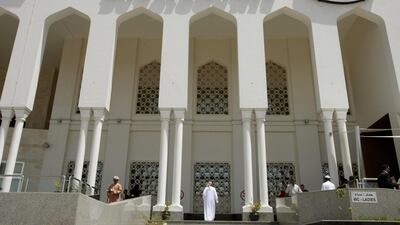The reforms to the UAE's personal status laws are a legal stimulus that will attract more expatriates and foreign investment to the Emirates, lawyers said on Sunday.
The comprehensive package, which included changes to laws on divorce, is wide reaching and would bring the country’s legal system on par with key global hubs.
Other major developments announced on Saturday included changes to inheritance laws, where assets would no longer be automatically divided under Islamic law, or Sharia.
Experts said the amendments would settle a lot of questions expatriates had about how their assets would be divided after death.
Michael Kortbawi, partner at BSA Ahmad bin Hezeem and Associates LLP, said the news was a step in the right direction.
“We need more time to understand it and we have to wait to see the written law but it will be welcomed by many expatriates,” he said.
“The newest development I see is the option to reduce the application of Sharia in inheritance and divorce issues.
“When it comes to inheritance, it will assure people that whatever they own will be transferred according to their dying wish or as per the law of their country of origin.
“That is one of the main pillars of this announcement and it is a real game changer.”
Although a copy of the draft law has not been released, lawyers who spoke to The National said it is expected to be published in the Official Gazette soon.
Jasmin Fichte, managing partner at Fichte and Co legal firm in Dubai, said it was a positive and bold step by the government.
“Expatriates will be encouraged to continue their lives after retirement within the UAE without any fears of the process of dividing their estate according to Sharia and or the UAE laws,” she said.
“Previously, if a non-Muslim person died in the UAE, their inheritors were obligated to submit an inheritance certificate from the UAE so that the deceased's estate could be divided according to Sharia.
“Any inheritance certificate issued from a non-Muslim country, attested or not, would not be accepted before the UAE courts.”
But now, if a person dies in the UAE without a will in place, their estate will be divided as per the applicable law according to their citizenship – regardless of their religion.
“The only exception here applies to the properties which are owned by the person within the UAE,” she said.
“These properties will be managed and divided according to UAE laws.”
Previously, non-Muslims residing in Abu Dhabi were allowed to register their wills at the Judicial Department.
In Dubai, registrations were not permitted before Dubai Courts. Instead, non-Muslims only had the choice to register their will with the Dubai International Financial Centre’s Wills and Probate registry.
“We believe that by announcing such a Federal Decree-Law, any person will now be able to register their will before Dubai Courts,” Ms Fichte said.
“Additionally, it is anticipated that the registration fees will be much less than that of the DIFC Courts.
“The challenge will be how to implement foreign laws before the UAE courts. It could be that the judge will be provided with a translated copy of the foreign laws and trained accordingly.
“Another scenario could be that the court has appointed experts on the foreign jurisdictions.”
Nita Maru, solicitor and managing partner at TWS Legal Consultants in Dubai, said the new law has confirmed and consolidated what has been in place already within the UAE Personal Status Law.
Expatriates already had the option to apply their home country's laws. The new development is that courts now have a legal framework to apply home country law in practice to inheritance matters when one passes away.
“Having a will in place in the UAE is highly recommended and is now a must more than ever before to avoid UAE law applying to assets in the UAE,” she said.
“These new laws will now provide more confidence and peace of mind to expats that their home country law can be enforced where there is a will in place.”


